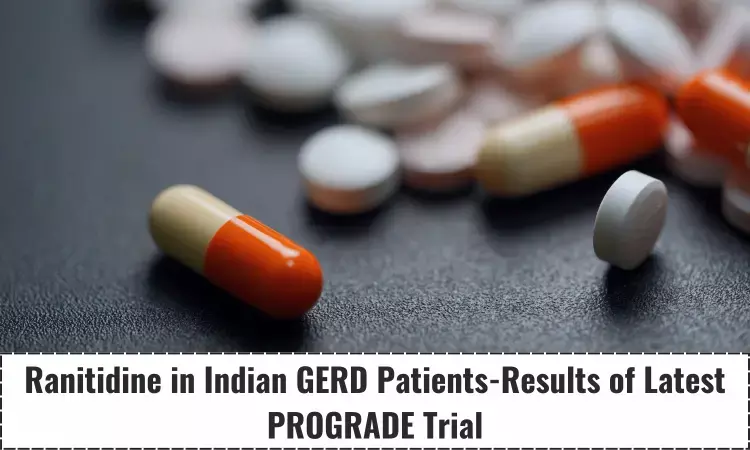- Home
- Medical news & Guidelines
- Anesthesiology
- Cardiology and CTVS
- Critical Care
- Dentistry
- Dermatology
- Diabetes and Endocrinology
- ENT
- Gastroenterology
- Medicine
- Nephrology
- Neurology
- Obstretics-Gynaecology
- Oncology
- Ophthalmology
- Orthopaedics
- Pediatrics-Neonatology
- Psychiatry
- Pulmonology
- Radiology
- Surgery
- Urology
- Laboratory Medicine
- Diet
- Nursing
- Paramedical
- Physiotherapy
- Health news
- Fact Check
- Bone Health Fact Check
- Brain Health Fact Check
- Cancer Related Fact Check
- Child Care Fact Check
- Dental and oral health fact check
- Diabetes and metabolic health fact check
- Diet and Nutrition Fact Check
- Eye and ENT Care Fact Check
- Fitness fact check
- Gut health fact check
- Heart health fact check
- Kidney health fact check
- Medical education fact check
- Men's health fact check
- Respiratory fact check
- Skin and hair care fact check
- Vaccine and Immunization fact check
- Women's health fact check
- AYUSH
- State News
- Andaman and Nicobar Islands
- Andhra Pradesh
- Arunachal Pradesh
- Assam
- Bihar
- Chandigarh
- Chattisgarh
- Dadra and Nagar Haveli
- Daman and Diu
- Delhi
- Goa
- Gujarat
- Haryana
- Himachal Pradesh
- Jammu & Kashmir
- Jharkhand
- Karnataka
- Kerala
- Ladakh
- Lakshadweep
- Madhya Pradesh
- Maharashtra
- Manipur
- Meghalaya
- Mizoram
- Nagaland
- Odisha
- Puducherry
- Punjab
- Rajasthan
- Sikkim
- Tamil Nadu
- Telangana
- Tripura
- Uttar Pradesh
- Uttrakhand
- West Bengal
- Medical Education
- Industry
Ranitidine Reaffirms Clinical Utility in Indian GERD Patients-Results of Latest PROGRADE Trial

Ranitidine hydrochloride is safe and clinically effective among Indian patients suffering from Gastroesophageal Reflux Disease (GERD) with an acceptable tolerability profile, the findings from the latest PROGRADE trial, an Indian study reported.
The PROGRADE TRIAL was designed as an open-label, prospective, multicenter, phase-IV study that included 2428 Indian patients across 21 centers in diverse clinical settings.
The study aimed to assess the efficacy, safety, and tolerability of Ranitidine HCl 150/300 mg tablets (Rantac® 150/Rantac® 300/Rantac® OD 300 of J. B. Chemicals and Pharmaceuticals Ltd.) among Indian patients with GERD.
The study has been published in the latest issue of the Open Journal of Gastroenterology.
The patients enrolled in this open-label study were assigned to one of the three treatment interventions; namely, Ranitidine HCl tablets 150 mg BID (ARM-A), Ranitidine HCl tablets 300 mg OD or BID (ARM-B), and once-daily controlled release formulation of Ranitidine 300 mg (ARM-C).
Gastroesophageal Reflux Disease Symptom Assessment Scale (GSAS) score and Heartburn Severity score were used to assess the study drug’s efficacy endpoints. GSAS is a GERD-specific scale that includes unidimensional and multidimensional questionnaires to assess the patient’s symptoms, severity, and frequency in patients with GERD. Heartburn, food regurgitation, flatulence, belching, dysphagia, nausea, vomiting, and acid regurgitation were the primary symptoms of GERD.
The efficacy analysis of the study demonstrated that:
- About 75.95% of patients in the Ranitidine HCl tablets 150 mg BID (ARM-A) group, 61.88% in Ranitidine HCl tablets 300 mg OD or BID (ARM-B), and 58.10% in the once-daily controlled release formulation of Ranitidine 300 mg (ARM-C) group were completely relieved from the eight key symptoms of GERD - heartburn, food regurgitation, flatulence, belching, dysphagia, nausea, vomiting, and acid regurgitation.
- The percentage of patients relieved from the defined eight key symptoms was higher in ARM-A when compared to the other two groups (ARM-B & ARM-C), and it was significant (p<0.001); It was noted that the efficacy was comparable between ARM-B and ARM-C.
- The GSAS score was reduced from 2.02 to 0.23 in patients under ARM-A, 2.01 to 0.24 in patients of ARM-B, and 2.07 to 0.26 in ARM-C patients.
- About 72.82% of study patients had 24-hour heartburn-free days, and 66.89% had 7 consecutive heartburn-free days. A drastic reduction in the percentage of patients under ARM-C from 24 hours of heartburn-free days to 7 consecutive heartburn-free days (70.27% vs 52.70%) was observed.
The safety analysis of the study showed that:
- About 5.27% (n=128) of patients were affected by ADRs due to Ranitidine across different doses. Causality assessment was done using the World Health Organization (WHO) scale, which showed only 11 (8.59%) ADRs were related to the study drug. The most frequently reported side effects were constipation (17.18%), followed by oliguria (14.06%), cold (13.28%), and dysuria (12.5%).
- No mortalities or hospitalizations were reported in treatment groups throughout the study period.
This latest published Indian experience concluded Ranitidine hydrochloride in doses of 150 and 300 mg showed a well-tolerated safety profile along with favorable efficacy. Ranitidine significantly reduces the GSAS scores, improving major clinical symptomatology associated with GERD during the study period. Ranitidine hydrochloride demonstrated a safety profile comparable to previously reported studies. The study re-emphasizes that Ranitidine hydrochloride continues to remain an efficacious and clinically useful consideration for the management of acid-peptic disorders.
The study was supported by J. B. Chemicals and Pharmaceuticals Ltd.
Reference: Shukla, A., Awasthi, A.K., Rao, R., Yadav, D.P., Nolkha, N., Pendlimari, R., Dua, S., Bhatnagar, S., Mote, R., Birla, A., Savai, J., Mehta, K. and Salunke, S. (2023) A Prospective, Multicentric, Post Marketing Surveillance to Evaluate Efficacy & Safety of Ranitidine HCl (150 & 300 mg IR/CR) in Indian Patients with Gastroesophageal Reflux Disease (PROGRADE). Open Journal of Gastroenterology, 13, 237-249. https://doi.org/10.4236/ojgas.2023.137022
Dr Kamal Kant Kohli-MBBS, DTCD- a chest specialist with more than 30 years of practice and a flair for writing clinical articles, Dr Kamal Kant Kohli joined Medical Dialogues as a Chief Editor of Medical News. Besides writing articles, as an editor, he proofreads and verifies all the medical content published on Medical Dialogues including those coming from journals, studies,medical conferences,guidelines etc. Email: drkohli@medicaldialogues.in. Contact no. 011-43720751


